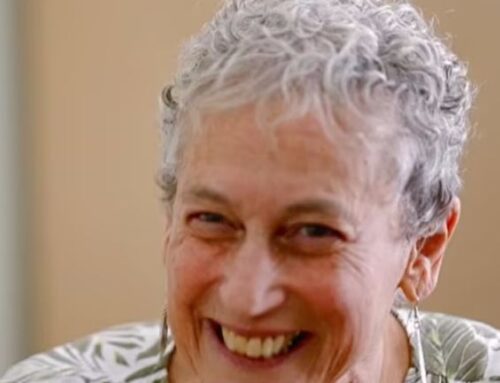 The recent edict by the Fraser Health Authority in British Columbia ordering non-religious healthcare facilities, including hospices, to participate in euthanasia, is an infringement on the conscience rights of the medical staff.
The recent edict by the Fraser Health Authority in British Columbia ordering non-religious healthcare facilities, including hospices, to participate in euthanasia, is an infringement on the conscience rights of the medical staff.
I believe that institutional conscience rights are about the rights of the workers within an institution to not participate in acts that they consider wrong.
The edict by Fraser Health directly affects institutions such as the Delta Hospice that is opposed to participating in euthanasia. Janice Strukoff, an administrative leader with the Delta hospice stated: “Hospice palliative care is not about hastening death and we object to the bullying currently taking place in B.C.”
Nancy Macey, the founder and executive director of the Delta hospice stated: “MAiD (medical assistance in dying) can be a traumatizing experience for staff, patients, and volunteers, and all groups might not want to stay or work there if the principles of palliative care are compromised. Hospices are already grappling with a shortage of health professionals so compelling the society to provide MAiD could exacerbate the problem.”
In response to the order by the health authority, Delta hospice rejected the order and Neil Hilliard, the medical director of the Fraser Health Palliative Care stated in his resignation letter: “Providing euthanasia or physician-assisted suicide is not in accordance with palliative care (which) ‘affirms life and regards dying as a normal process’.”
On Feb. 10, there was a meeting in Langley, B.C., concerning the forcing of euthanasia upon medical facilities against the staff decision to not participate in MAiD. The meeting attracted 300 people and featured federal Conservative MP Mark Warawa (Langley-Aldergrove) and Liberal MLA Mary Polak (Langley), along with representatives from the Fraser Health Authority. At the meeting Warawa said that the battle to protect conscience rights “is not over. It’s just begun.” Warawa also stated: “that (permitting MAiD) will destroy palliative care as it has developed.”
Mary Polak was forthright in her comments by stating: “To say that you are going to place medical assistance in dying: or let’s call it what it is, killing people. Sorry, but that is what it is – (and decide that) you’re going to put that into a hospice palliative circumstance, is to completely contradict what palliative care is to begin with.”
The decision of the Fraser Health Authority also affects plans to build a new hospice in Langley. Kathy Derksen, the executive director of the Langley hospice stated: “When MAiD was first law, Fraser Health consulted with stakeholders and agreed it would not be imposed on hospice and palliative care facilities.”
Healthcare workers’ conscience rights have become a national issue in Canada. Recently, an Ontario Court decided that doctors who oppose euthanasia must participate by doing an “effective referral” for euthanasia.
Will Johnston, British Columbia chair of the Euthanasia Prevention Coalition, eloquently explained the pressures that are faced by medical professionals in his article, “The alarming trend of forcing hospitals and hospices into doing assisted suicide.” Johnston writes, “Many hospices serve patients who want nothing to do with assisted suicide, and there will be much harm done by forcing it into their midst. Every community in this country has the resources to provide a distinct euthanasia-free space. That distinct space and its staff could be specialized and uncoerced into death-hastening.”
Reprinted with permission from the blog of Alex Schadenberg, executive director of the Euthanasia Prevention Coalition, where this article originally appeared Feb. 14.




